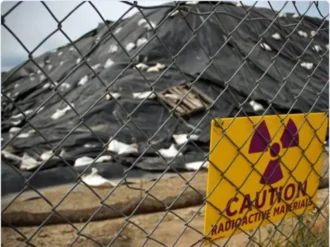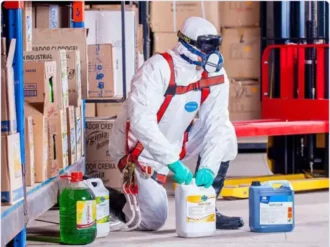Introduction
Despite a very hazardous environment, pharmaceutical manufacturing safety has only become a pressing matter in the past few decades. More recently, statistics have shown that almost all accidents occurring in this work environment are the result of human error. As such, it is paramount that pharmaceutical workers receive appropriate safety and risk management training before commencing their activities.
Potential Hazards
Here are some of the most frequent risks related to the pharmaceutical industry:
Occupational Asthma.
One of the leading causes of occupational lung disease is occupational asthma, while technicians working around the manufacture of enzymes and antibiotics are exposed to an increased risk of developing OA. Symptoms only start to develop when exposure reaches one year or more, but by this time, treatment becomes especially difficult if contact with the work environment is not terminated. Protocols to identify the circumstances where dust inhalation takes place are yet to be established at an industry-wide level.Hormone Dysfunctions.
Synthetic hormones are a major part of the pharmaceutical business. Workers who spend time around assembly lines that create oral contraceptives and related products were found to have abnormally high levels of estrogen, which eventually lead to reproductive disorders and gynecomastia. Adrenal dysfunction is also associated with the production of certain hormones, whereas direct skin contact or inhalation of dust are some of the most common and unassuming ways in which employees are exposed.Fires and Explosions.
Batch research in pharmaceutical laboratories is often conducted with the help of toxic or flammable materials, but the complex chemical reactions engender significant energy releases. Explosions, fires, and other runaway reaction hazards can happen with the slightest mistake and threaten the lives of all staff present.Radiation.
Both through the process of making radiopharmaceuticals, as well as through substances meant to measure various functions of the organ system, pharma employees may come in contact with compounds that contain radioactive substances. Prolonged exposure to the latter can lead to unwanted immune system responses and various types of cancer.
Incident Prevention
Although the dangers related to pharmaceutical manufacturing are well-documented at present, this is a fairly recent development that was brought about by increasing work safety standards. As such, many companies may still operate with lackluster safety protocols that do not take into account the full extent of exposure to pharmaceuticals, nor the health risks associated with the latter.
The situation is further worsened by the delayed on-set of many symptoms. The only way to mitigate these occupational hazards is by means of thorough safety courses. Rigorous training enables pharma employees to become aware of all the potential hazards they are exposed to on a daily basis. As such, workers are able to take preventive measures to safeguard their health, as well as that of their colleagues.
Quite often, personal protective equipment is the only obstacle between a healthy worker and one whose fitness is declining as a result of occupational risks. One can never be too careful in an environment where the slightest mistake can lead to a life-threatening accident. If implemented with discipline, safety protocols prevent accidental exposure and human error from becoming more than a cleaning nuisance.
Recommended Safety Courses



What You Can Do to Stay Safe
Whether you’re a medical doctor, manufacturing technician, biochemist or microbiologist, you have a responsibility towards yourself, as well as your colleagues, to undergo the safety training required by your line of work. Canadian pharmaceutical companies are bound by law when it comes to informing their employees of the occupational hazards they’re exposed to. In addition, businesses have to provide safety training for every hired employee.
For a complete list of safety courses best suited for pharmaceutical manufacturing, please visit our Pharmaceuticals and Healthcare industry page.

